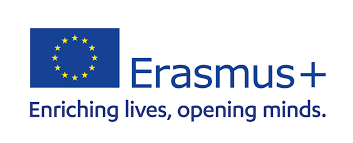
https://ec.europa.eu/commission/presscorner/detail/en/ip_23_4007
These projects all respond to the overall aim to support the international cooperation of higher education, improve education systems and strengthen growth and prosperity on a global scale. Through the projects selected this year, 2,500 higher education stakeholders from almost 130 EU countries and across the world will work together to modernise and internationalise higher education. The overall 2023 budget of €115.3 million will for example advance the professionalisation of maths in Central Africa; university studies in equity and equality law for vulnerable groups in Latin America; curricula for a sustainable blue economy in the Southern Mediterranean; and courses for transformative change in health education in South-East Asia. Projects in other regions focus on entrepreneurship skills for Central Asian women, digital education readiness in the Western Balkans, developing universities' international relations offices in the Middle East, and food and nutrition resilience curricula in Western Africa. This year, the EU has also earmarked €5 million of additional support for Ukraine to support a large-scale Erasmus+ project for universities to strengthen the digital environment for higher education in Ukraine. The four-year project called “DigiUni” will develop a high-performance digital platform for Ukraine's universities that will particularly benefit those students who had to flee the country or are internally displaced. It will ensure educational continuity for students enrolled at Ukrainian higher education institutions in the Ukrainian language and according to the Ukrainian curriculum. In particular, the DigiPlatform will offer a digital learning facility to develop training in online teaching techniques and adapt learning content for online or virtual delivery. The project, coordinated by Taras Shevchenko National University of Kyiv, will involve higher education institutions and stakeholders from six EU Member States (Belgium, Czechia, France, Germany, Poland and Spain)and 15 other Ukrainian partners, among which nine national universities, the Ministries of Education and Digital Transformation, the National Agency for Higher Education Quality Assurance, and three associations representing the IT sector and students. As part of the programme's support for the Neighbourhood East region, another 19 Capacity Building projects involve Ukrainian universities and authorities, of which some look into the role of universities in reconstruction, as well as curriculum reform proposals that focus on peace and multilateralism as cross-cutting elements in studies, or skills development in energy efficiency. Grant agreements will be signed by November 2023, so that projects can kick off their activities before the end of the year. Created 36 years ago, Erasmus+ is one of the most emblematic EU programmes and nearly 13 million people have participated in the programme so far. It has an estimated total budget of €26.2 billion and places a strong focus on social inclusion, the green and digital transitions, and promoting young people's participation in democratic life for 2021-2027. Erasmus+ Capacity Building for Higher Education is part of a broader set of actions to foster exchanges of students and staff and support cooperation in education between Europe and the rest of the world. These international actions are based on partnerships of institutions and stakeholders from the 27 EU and 6 associated countries on the one side, and from other regions of the world on the other (non-associated third countries). The six associated countries to Erasmus+ are Iceland, Liechtenstein, Norway, North Macedonia, Serbia and Türkiye. They are designed to benefit these third countries, using higher education cooperation as a channel for strengthening links between Europe and these countries worldwide. Together, partnerships develop new teaching content and techniques, train staff, and improve quality in university systems and administration. Projects are also able to pave the way for new policy approaches and reforms – these projects must involve national education authorities in their activities. They benefit not only the education sector itself: they also develop skills and practices in key areas for the economy and society, such as green manufacturing, energy management, food science, entrepreneurship and many more. Erasmus+ has an overall budget of €613 million for Capacity Building for Higher Education over the 2021-2027 period. Four more annual selections will take place, with the next call for proposals to be launched in November 2023. More information about today's results Capacity Building for Higher Education Capacity Building for Higher Education projects selected in 2022 C
Background
For More Information
Quote(s)
- 1112 reads










Add new comment